Best cheap laptops under £200, £300 and £500
The truth about budget laptops is that if you're paying less than £500, you'll have to make some compromises. We've seen sub-£500 Best Buy models in the past, but they're few and far between. But just because a laptop doesn't earn our highly prized Best Buy accolade, it's by no means an indictment of its value for money.
In this article, we’ll take you through our top picks of the best cheap laptops for less than £500, and give our expert tips on where you can make compromises – and where you shouldn't. We'll also outline what to look for in a cheap laptop for a child.
Whatever your budget, our lab tests reveal which models are worth your money and which aren't.
Best cheap laptops - what you need to know before you buy
- Laptops for less than £200: If you’re looking for a decent laptop that costs less than £200, you won't get many bells and whistles, but there are a few options available that have scored reasonably well in our tests. Ultra-cheap laptops are often best suited to more basic computing tasks such as writing documents and sending a few emails. They're also ideal for children who only have basic homework to do.
- Laptops for less than £300: Up the budget to £300 and you’ll start to find higher-scoring models with faster processors and better screens.
- Laptops for less than £500: If your budget can stretch to £500, you'll find a lot more to choose from. Models often have faster Intel Core i3 – and, at a stretch, i5 – processors, as well as speedy solid-state drives (SSDs) and vibrant Full HD screens.
Also, consider whether you want to include a cheap monitor to help you work more efficiently. See our pick of the best computer monitors to find out more.
Top cheap laptops under £500, £300 and £200
Below, we've gathered the very best laptops for less than £500, ranked by Which? test score. We've been sure to pick out the best models for less than £300 and less than £200, too, in case your budget is very tight.
We select and update these products monthly, and, where possible, the price is updated daily.
- GREAT VALUE
The Swift 1 is a firm favourite, and the 2021 edition continues that trend. It comes in at well under £500 but has some really useful features not often found on laptops this cheap. It includes a fingerprint reader, a Full HD screen and a half-decent processor, along with excellent battery life. It's a pick of the bunch when it comes to cheap laptops.
If you need a compact, versatile laptop that you can take anywhere, then this two-in-one from HP should be on your shortlist. It’s best suited to basic tasks and the screen and sound quality aren't the best in the business. Still, for the money, it is one of the better Chromebook laptops out there.
- GREAT VALUE
Anyone looking for a compact, versatile laptop will appreciate the Asus Flip CM3200FM Chromebook’s compact proportions and flexible 2-in-1 design – as well as its affordable price. The undeniably sub-par quality of the screen could be a sticking point, however, but for the money, you might be willing to overlook this.
- GREAT VALUE
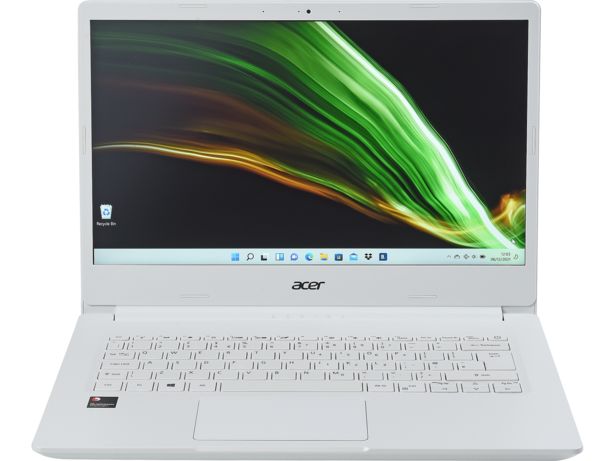
Acer
Aspire 1 A114-61
£300Test score
68%
The affordable Acer Aspire 1 A114-61 has excellent battery life and is portable. However, it’s only powerful enough for the most basic tasks, while the screen and sound leave a lot to be desired. Still, for the money, it is one of the better Windows laptops out there, especially if you're looking for a cheap basic laptop for a child or someone who only wants to check their emails.
- GREAT VALUE
Yes, the screen isn’t the best. And, no, the sound quality isn’t great. But it feels a little uncharitable to be overly critical of the compact Lenovo IdeaPad 3 Chromebook when you consider its low price. This is definitely one to think about if your budget is tight.
- GREAT VALUE
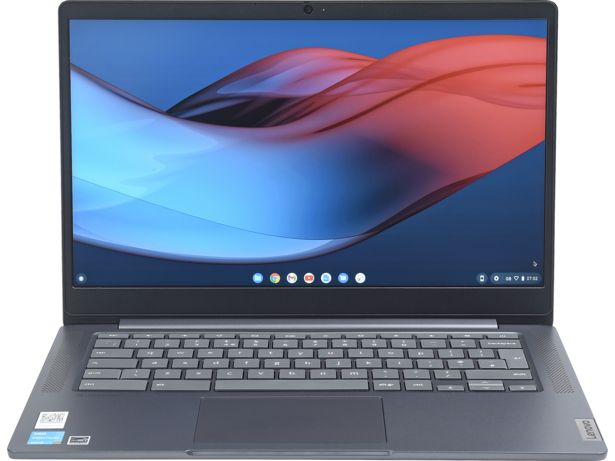
Lenovo
IdeaPad 5i Chromebook Gen 6
£380Test score
65%
It feels a bit cheaply made and doesn’t have the best screen we’ve seen. But if your budget is tight and all you want is a very simple laptop for light work, then Lenovo’s sub-£400 IdeaPad 5i Chromebook Gen 6 is worth considering.
- GREAT VALUE
This is a great-looking and versatile Chromebook for under £500. It's faster than some of its rivals, too, with a Core m3 processor that should see it comfortably easing ahead of Celeron and Pentium-powered budget alternatives.
- GREAT VALUE
It might cut a few corners in terms of build quality, and its touchpad leaves something to be desired, but Acer Chromebook Spin 513 is a highly portable device that manages to offer a lot of versatility for your money.
It’s no powerhouse, the screen isn’t the best and battery life is only average. But the Asus C424 Chromebook (C424MA-EB0079) is definitely worth considering if portability and price are your chief concerns.
As with most cheap laptops, there are compromises aplenty, including cheap build quality and a dim screen. It's also only fast enough for basic tasks, but if you're on a budget and that's all you need, it's a fine choice.
Recommendations checked August 2022.
Can't see the model you're interested in? Cheap laptops to avoid
Shopping at the budget end of the market is not easy. We've named the worst offenders as Don't Buys, because of poor performance, battery life, display quality, or often all three. The Don't Buy laptops below are definitely models to avoid.
- DON'T BUY
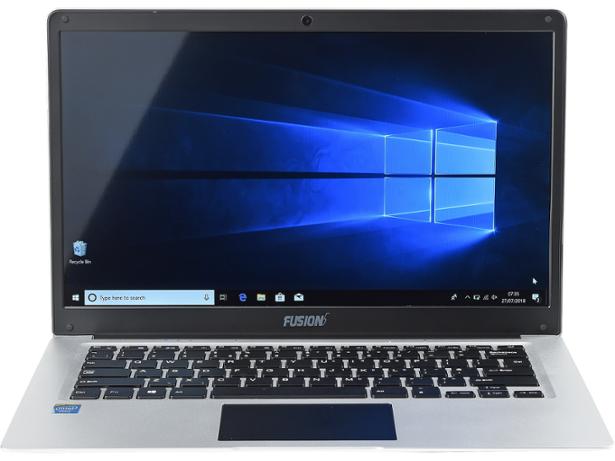
Fusion5
T90-series
£199Test score
45%
Fusion5 is apparently popular on Amazon, but our tests reveal this budget laptop is a completely false economy. It’s slow, poorly made and the battery life is awful. Other than that, it’s great.
- DON'T BUY

Lenovo
IdeaPad 3 14-inch 14DA05
£299Test score
44%
This sub-standard laptop isn't terribly slow, but it lacks skills in any other area, with poor battery life, fiddly keyboard and touchpad, dull screen and terrible speakers.
The pros and cons of cheap laptops
If you’re thinking of buying a cheap laptop, you should know what you can and can’t do with your new machine.
Pros of cheap laptops
- Portability: Very cheap laptops under £300 tend to be small, which means they often weigh around 1kg or less. They’re also typically very thin, so should slide into even the smallest of bags.
- Battery life: Because these laptops have low-power processors, they often have exceptionally long battery life. Some of the best models we’ve tested easily last more than 10 hours, so you shouldn't get caught out if you’re away from a power source for longer than you expected.
- Cheerful designs: Some budget laptops have more colourful, slightly rugged designs. While this won’t ever make or break a laptop buying decision, it can be a nice bonus.
Cons of cheap laptops
- Speed: While laptops costing around £500 will be fast enough for almost everyone, if you cut the budget much more than this, speed will suffer. The very latest models are fine when web browsing, but they will slow down significantly if you try to have several programs running at once. Most very cheap laptops have lower-end Intel Celeron and Atom processors. Read more about processor brands in our guide to Intel, AMD and Nvidia.
- Screen quality: Some cheaper laptops have screens that are significantly duller, with lower resolutions than their more expensive counterparts. This isn’t a universal truth, however, and some ultra-cheap laptops have impressive screens. Our laptop reviews reveal all.
- Low storage: Small and cheap laptops, especially Chromebooks, have little storage. These laptops are best for working on documents stored in cloud services such as Google Drive and Microsoft OneDrive. If you have a large collection of photos and videos, you might need to keep them on an external USB hard drive. If you’re buying a Windows laptop with 32GB of storage or less, you'll need to also buy a micro-SD card to increase storage to prevent Windows 10 updates from causing problems.
Cheap laptops for children
Our reviews assume the laptop user is an adult or a student in further education (sixth form, college or university, for example), who will have certain minimum requirements.
If you're buying for a younger child who only needs a laptop to do their homework, you can spend as little as £150 on a new budget model that should be up to the job. That’s not to say you should completely ignore our reviews, as few budget laptops excel in our tests, but it does mean you can be a little more flexible.
That said, you should aim to buy a laptop that’s not too old. Cheap laptops from a few years ago were slow when they launched and might feel even slower today, as programs and the web have become more demanding for older computers.
What to look for in a cheap laptop
Here are the minimum specs to look for if you’re buying for a younger child and have a budget of less than £200.
- Operating system: Windows 10 S or Windows 11 S or ChromeOS
- Processor: Intel Celeron or Pentium
- Memory: 4GB Ram
- Storage: 64GB of storage (Windows) or 32GB of storage (ChromeOS)
We'd recommend a smaller, 11-inch screen (to make the laptop easy and safe to carry around). Avoid big, heavy laptops that a child will struggle to carry.
You should also check if it's going to be compatible with Windows 11 - use our free Windows 11 requirements checker tool. If it's not compatible, don't necessarily rule it out as it gives you the opportunity to haggle with the seller. After all, Microsoft will still support Windows 10 until October 2025, which may well suit your needs.
Steer clear of:
- Processor: Intel Atom and older Intel Celeron processors (look out for model numbers starting with N3 and N40, such as N3060 or N4020, as these are old and slow).
- Memory: 2GB Ram (it's just not enough).
- Storage: 16GB storage (this will get full up very fast).
If you opt for Windows 10 S, your computer will only be able to install apps from the Microsoft Store. This means there's much less chance of your child accidentally downloading an app that’s actually a virus or full of spam. You can also set up their Microsoft account to be a 'child' account linked to your own account, so you can limit what they're allowed to do with the laptop.
Chromebooks are also worth a look. In fact, your child might already use one at school, as these are popular among educational institutions. Read our guide to Chromebooks for more.
We’d recommend sticking to models from well-known brands, sold by trusted retailers, as you can more easily guarantee that they’re new and have a valid warranty. You'll also have access to a dedicated customer-support service via the manufacturer’s website.
Buying a no-name brand from an online marketplace such as Amazon Marketplace or eBay, for example, means you might get little or no support. Some brands don’t even have websites, making them impossible to contact.
Not sure whether to opt for a Chromebook or Windows laptop? Our guide on Chromebooks vs MacBooks vs Windows laptops can help you make the right choice.
Getting a good deal on a cheap laptop
Laptop deals are a dime a dozen if retailers' special offers are to be believed, but just because a deal exists, doesn’t mean it’s special. Indeed, sometimes the 'sale' price is simply the usual price but with a big red label on it.
We've put together a full guide on laptop deals, including five top picks updated monthly, and a full suite of advice on how to get the best out of the UK's biggest retailers.
Head over to our best laptop deals to find out more.



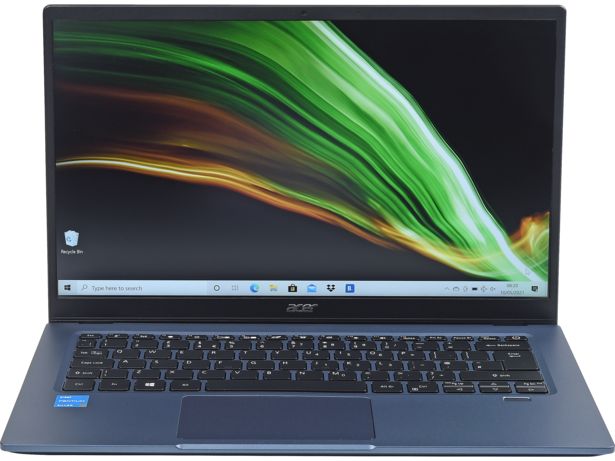

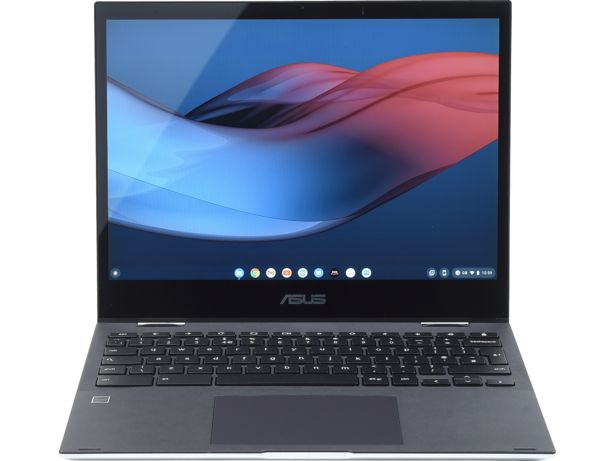
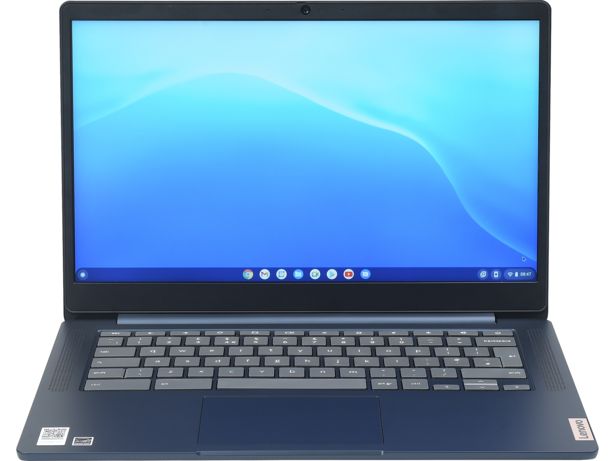


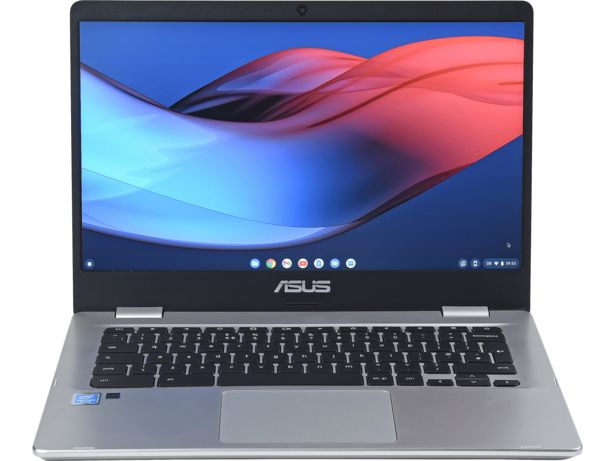

Comments